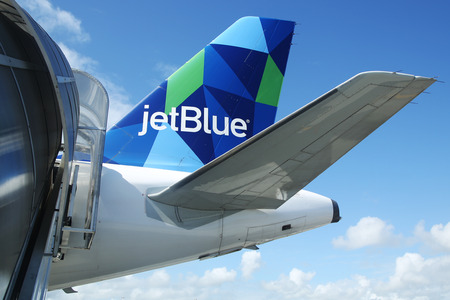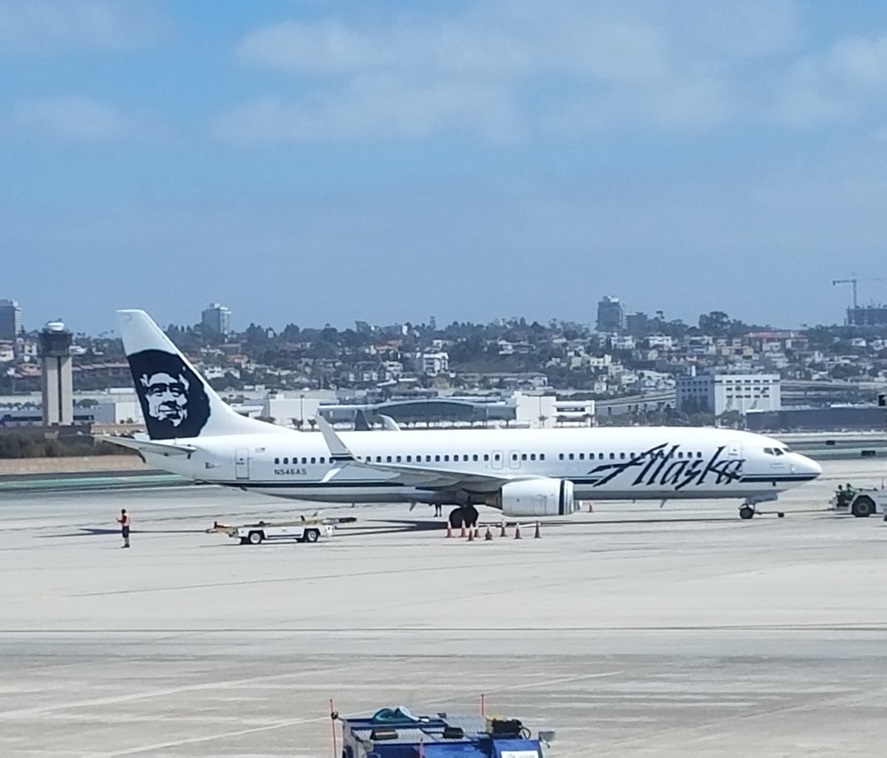JD Power is out with their consumer survey on frequent flyer programs and they are ranking programs as follows:
- JetBlue Airways TrueBlue
- Alaska Airlines Mileage Plan
- Southwest Airlines Rapid Rewards

They then ranked the other three airlines included in their research as Delta, American, and United respectively.
The study highlights that “Frequent fliers want more than miles” but the examples they give are about earning miles in a variety of places something all the major US frequent flyer programs provide — most more so than their winner JetBlue. This isn’t about spending miles for toasters.
JD Power appears to be disclosing very little about their methodology that I can find. Their hotel loyalty studies have been deeply flawed.
They do say that they place emphasis on member communications which – while important for members to get the most out of a program – doesn’t really speak to the underlying value of that program. And they separately consider ‘earning and redemption’ from <>‘account activities’ which seems strange.
Satisfaction is measured across four factors: Member Communication; Earning and Redeeming Points; Program Benefits; and Account Activities.
Brian Sumers of Skift tried to undercover more of the methodology behind the survey but JD Power “declined to share more detailed information about its questions, or how it conducted the survey.”
While they may offer conclusions that we can make some sense out of, those conclusions don’t obviously stem from a sound approach at actually understanding who is delivering the most value to customers.
JetBlue has a regional and simple program but doesn’t offer much of an opportunity beyond simple rebates. Their program is closer to a punch card than offering travel dreams to members and is likely to appeal most to customers based in New York, Boston, and South Florida.
Alaska’s program is underappreciated with generous points-earning and global partnerships. The Mileage Plan program is the last major offering in the US that rewards customers for how much they fly not how much they spend — and that still has consumer-friendly award pricing. However with Delta’s ties cut from the program and American’s partnership with Alaska much diminished, the carrier that bought Virgin America is largely a viable player on the West Coast.

These things are generally true, Alaska Airlines is defensible as best program (#2 in the JD Power rankings) but JD Power seems to be getting there by luck.


Deeply flawed …you hit the nail on the head. I’d be a little more blunt and ask. Wwhat are they smoking at J.D. Powers?
I would simply point out that — *since* American’s partnership with Alaska [was] much diminished — I have used AS miles/points on AA for the following:
— A one-way flight from MAD-SFO, via CLT last October;
— Two round-trip flights from SFO-ATL in January (outbound on AA; return on AS).
I don’t pretend to speak for anyone else, but for me personally, AS MP has been VERY useful.
Yeah the best frequent flier program would be the one that attracts the most discretionary spend all things equal Ie don’t count those on corporate contract, at fortress hub or otherwise bound to a program. Alaska is clearly best. The rest are all pretty weak these days, for example Southwest knows this and has to offer companion passes on CC signup to shore up its offering vs Alaska in California.
I don’t give much credibility to JD Power. Seems like every car company gets an award. Likely every airline will get some sort of top JD Power award so they can use it in marketing. JD Power isn’t likely to offend too many folks as their business model is giving out awards.
Even though their data is likely flawed they aren’t too far off. It also depends deeply on who you ask. Southwest customers are very vocal and loyal so they are likely to rate that program higher than other airlines.
It’s also fun to drill into their airline awards. I found it interesting that they include Frontier and Westjet in the LCC’s for North America but not Spirit.
On the hotel side it’s fun how they give Marriott and Hilton a tie for best. That way both companies can say they won.
It’s also fun to click on the “Hotel Economy” ratings and see that almost all the brands are Wyndham.
I can see how programs with “easy to redeem” miles score high, and the B6/WN way of life has more stable redemption values. Between tighter inventory and ever-rising mileage requirements, I can see why the mainstream programs can be less alluring to the average person.
I remember when I got my first FF card back in 1998, I thought I’d never earn enough miles for a “free ticket”. If that’s how the average person feels, then the simplicity of B6 and WN will win out.
Alaska is major viable in the Dallas market due to its acquisition of Virgin America. Also, it is at the close-in airport (DAL).
Alaska needs to hang in there in spite of DL and AA desires to run it out of business. Another merger or any other way to get bigger fast would be nice.
If there’s any truth to the research, it’s bad news for translating high value redemptions by us in addition to a major shakeout of the “travel-for-less” blogosphere business model.
Delta would like to run Alaska out of Seattle without a doubt but will Not happen. The AA/Alaska partnership was reduced due to DOJ requirements to get the Alaska/Virgin Merger Approved…. Stop talking shit If You know Nothing about the Case. another Internet Idiot spouting Nonsense!
@Reese — you do not know what you are talking about, the DOJ placed limitations on codesharing they did not impose any limits on the frequent flyer partnership at all.